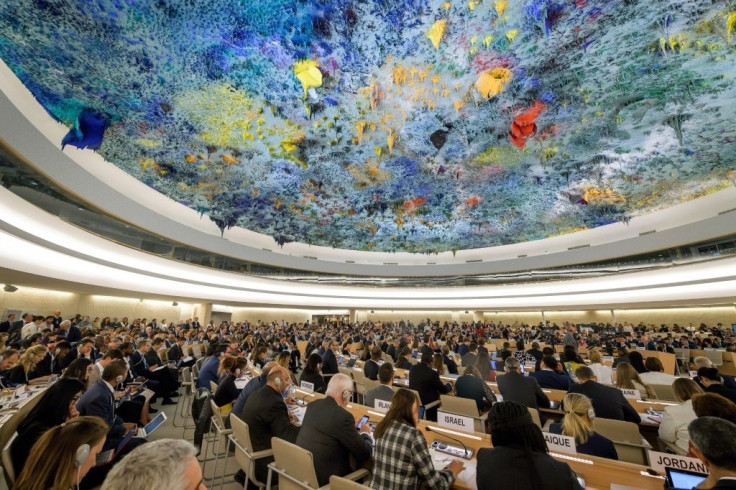Uproar As Venezuela Wins Seat On UN Rights Council

Venezuela won a seat on the UN Human Rights Council Thursday, sparking outcry from the United States, advocacy groups and Latin American countries who say its rights record is appalling.
The United States slammed the result as an "embarrassment" for the United Nations but Venezuela hailed it as a "historic victory," saying it would use its position to promote peace.
To applause in the chamber, Venezuela got the nod in a vote by the UN General Assembly that chose 14 new members for the 47-member body based in Geneva.
The council works to promote and protect human rights around the world. Its members are elected for staggered three-year terms on a regional group basis.
Two of eight seats allotted for Latin America were up for grabs Thursday and Brazil took the other one after winning the most votes.
The leftist government of President Nicolas Maduro has jailed opposition leaders and is accused of using torture and arbitrary arrests as it struggles to hold on to power amid a collapsing economy.
More than 50 countries have switched their recognition to national assembly speaker Juan Guaido as the country's legitimate acting president.
But Maduro still has strong support at the UN, from Russia and China in particular.
"Today's election of the former Maduro regime in Venezuela to the UN Human Rights Council is an embarrassment to the United Nations and a tragedy for the people of Venezuela," said US Ambassador to the UN Kelly Craft.
"It provides ironclad proof that the Human Rights Council is broken and reinforces why the United States withdrew," she added.
Earlier this month, Costa Rica jumped into the running with the specific goal of denying Venezuela a seat, but it lost out on Thursday. In the end, Brazil got 153 votes, Venezuela 105 and Costa Rica, 96.
The UN High Commissioner for Human Rights, Michelle Bachelet, reported in July that over the previous year and half there had been nearly 7,000 extrajudicial executions and that security forces were responsible for most of those deaths.
Maduro hit back and accused Bachelet of "lying."
In Caracas, Attorney General Tarek William Saab hailed the vote as a "major achievement" and announced the release of 24 detained opposition figures.
'Crimes against humanity'
Foreign Minister Jorge Arreaza described the outcome as a "historic victory" achieved despite a "ferocious" and "brutal" campaign waged by the United States to try to prevent Venezuela's entry.
Members can be suspended for serious rights violations but this has only happened once: to Libya, in 2011.
Human Rights Watch condemned Thursday's vote as a slap in the face to the people of Venezuela and the international community.
"It is discouraging to see a cynical candidacy mar the credibility of the UN Human Rights Council," said Philippe Bolopion of HRW, which had campaigned against the Venezuelan bid along with some 50 other international and Venezuelan NGOs.
Louis Charbonneau, the UN director at Human Rights Watch, said earlier a vote for Venezuela "is a vote for the torture, murder, and impunity that have become trademarks of President Nicolas Maduro's government."
Late last month the council created a group of experts to investigate human rights violations in Venezuela since 2014. The Caracas government called this a hostile act.
"There is certainly no precedent for Latin American countries to challenge one of their neighbors for a seat on a multilateral body in such a direct provocative way," Christopher Sabatini, who teaches international and public policy at Columbia University, said in the runup to the vote.
© Copyright AFP 2024. All rights reserved.





















